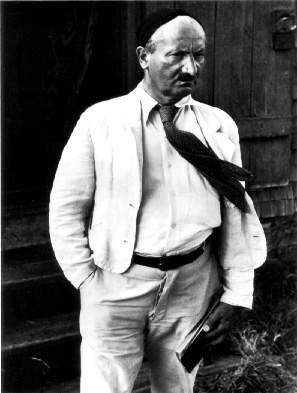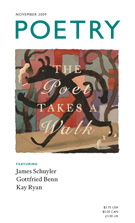Two things for you to do if you live where I live and like things like things I like, which maybe if you are like me you will, or if you aren’t like me but you like me, or if you don’t like me and want to know where you can find me because you want to find me there so you can hit me when you find me, which, please, do not do because I don’t deserve that kind of treatment because I didn’t do anything to deserve it, unless I did, and don’t remember or didn’t realize, which is totally possible, but still please don’t hit me
First a reminder that The New York Tyrant event for #7 and for BABY LEG BY BRIAN EVENSON kicks off in just a few hours. Details at Blake’s post from the other day.
Also, I am reading on Monday 11/23 at PS122, with the Wu Ming Collective, that group of Italians who write novels together. I will (probably) be reading from my novel-in-progress. If I don’t chicken out or otherwise lose my shit, this will be the first public reading of material from the ostensible “book.” I don’t know what Wu Ming will be doing. Details at the event’s Facebook page.
eBooks are probably going to pass away within 10 years
 There is no way to sustain interest in reading Catch-22 online. But does eBook also refer to handheld readers like the Nook (whick looks to kill the Kindle)? Cuz I dunno but those things might catch on.
There is no way to sustain interest in reading Catch-22 online. But does eBook also refer to handheld readers like the Nook (whick looks to kill the Kindle)? Cuz I dunno but those things might catch on.
Anyway, Jane Friedman, who used to be the head of HarperCollins but got retired, just started a company called Open Road Integrated Media with the guy who made the movies You Can Count on Me and Boys Don’t Cry (fuckin ICK) (JK). They’re like millionaires or whatever and their plan is to release 750-1000 eBooks next year. Their strategy is to use an unnamed platform to promote the titles on blogs and Twitter. Read about it at NYTimes.
Really what they are is a content marketing system. They’re “publishing” old books which are, you know, like already typed up and stuff, and maybe mostly public domain (I dunno), and don’t need to be manufactured etc — so it’s pretty smart of them to recognize the real work is in marketing the titles. Their secret marketing discovery is the real story. They call it a “multi-platform universe.”
And they’re going to offer self-publishing services. So POD is now ePOD. I think what this means is you send them your book as a PDF (designed to their specs) and they’ll plug it into their doohickey and put you out there for consumption. Which seems like a weird doublething, if you try to think of them as a publisher. Which is how I think of people who put out stories by William Styron and Pat Conroy. But then if they also publish my self-published book, either my book isn’t self-published or they aren’t publishers.
Which I guess is why they call themselves a content marketing company.
Which I guess is just another kiss farewell to doing books with editors and junk.
So maybe not in 10 years, but someday we’re all going to die. In the meantime I’m going to go reread Heidegger’s essay “The Thing,” which I’m sure I can find online somewhere.
New Feature: Q & A

Writers (both novice and experienced) often have questions about writing, publishing, etiquette and more. We’d like to try and help. If you have questions, leave a comment with your question(s) in this post or send me an e-mail. Anonymous questions are fine. Over time, we’ll post answers to your queries with insight from some of the HTML Giant contributors and hopefully offer a small bit of sanity to the craziness that is publishing.
Ask away!
A gentle reminder: Publishing your friends is not necessarily cronyism
 Cronyism, the practice of promoting some people and excluding others purely on the basis on personal relationships, is bad and to be avoided. The word brings to mind corrupt politicians who award high-ranking posts or lucrative contracts to their old pals when they have no business or training to do the work.
Cronyism, the practice of promoting some people and excluding others purely on the basis on personal relationships, is bad and to be avoided. The word brings to mind corrupt politicians who award high-ranking posts or lucrative contracts to their old pals when they have no business or training to do the work.
But things work differently in the realm of publishing. When someone publishes a story or poem or even a book by his or her friend, colleague, student, or lover, there’s a good chance that it isn’t an instance of rank favoritism. Many times, the reason the two people are acquainted with the person in the first place has quite a lot to do with their writing.
People become friends through all sorts of avenues, but I would put it to you that most writer-friendships develop because of some overlap in the two people’s aesthetic values and writing styles. What are the chances, really, of meeting another writer at the gym or at some bar? Most people are not, after all, writer-people. So the chances are slim, compared to meeting one at a reading, in an MFA program, or through another writer. If you both picked that reading or that grad school to attend, you probably have something in common already. If you choose to become friends, that’s probably a sign of something even deeper in common, writer-wise. READ MORE >
Examining the Ruth Lilly $$$ (1) A Guest Note from Joseph Goosey
In response to my call for “close reads” on the Ruth Lilly fellows earlier today, Joseph Goosey sends us some examinations of the phrases used in this bit by a dude by the tag of Joseph Spece.
Among Elks
BY JOSEPH SPECEWoke in the brume,
lilacs like turf stars.The late fawn
standing in his syrups;bucks down the swale
chewing sedge.We move south
to slopes of sleeping poppy,past the white alder,
bending heads to scentof calx—in natural dark
a man tries his handat belonging. He
with greave of hide, a bornhood, lay with three
spikes in the clay, greenpeak in the breeze.
He whose breathingwrongs the still.
You stir now to mend,to redress?
To be one of us, after all this?
Take a word on this from Joseph after the break.
“Everyday Pretending is something you do with a bit of your brain, with the edges.”
 Via Boing Boing, here is an awesome photoessay by Russell Davies on playfulness originally delivered at the Playful conference in London. From the essay:
Via Boing Boing, here is an awesome photoessay by Russell Davies on playfulness originally delivered at the Playful conference in London. From the essay:
Everyday Pretending is something you do with a bit of your brain, with the edges. It’s a thing of inattention, not concentration. Compare, for example, the Theory Of Fun piano stairs with Greyworld’s tuned railings. The stairs thing is fun and it makes a point, but it would drive you mad after a while, there’s no subtlety to it, no joy in the discovery, nothing hidden, it’s all on the surface. It’s that totalising instinct of so many ‘brand’ people – make things obvious, make things clear. There’s a parallel in the maniacal world-building instinct of games people – leave no detail unturned, offer no escape from the vision … We don’t need many cues to help us pretend. We’ll find meaning in the noisiest noise – just give us a tiny signal and we’ll come up with a message.
November 16th, 2009 / 2:25 pm
Ruth Lilly Fellows
 This month’s issue of Poetry features a buncha dudes/dudettes who won the Ruth Lilly Fellowship, which if you are like me and had no fuckclue what that means it means they got paid $15 grand for being writers. Awesome, right? People should get money for making words (truly). Let’s look at some of these fifteen-thousand dollar words, no?
This month’s issue of Poetry features a buncha dudes/dudettes who won the Ruth Lilly Fellowship, which if you are like me and had no fuckclue what that means it means they got paid $15 grand for being writers. Awesome, right? People should get money for making words (truly). Let’s look at some of these fifteen-thousand dollar words, no?
Sifting in the Afternoon
by Malachi BlackSome people might describe this room as spare:
a bedside table and an ashtray and an antiquechair; a mattress and a coffee mug;
an unwashed cotton blanket and a rugmy mother used to own. I used to have
a phone. I used to have anotherroom, a bigger broom, a wetter sponge.
I used to water my bouquetof paper clips and empty pens, of things
I thought I’d want to say if given chance;but now, to live, to sit somehow, to watch
a particle of thought dote on the dustand dwindle in a little grid of shadow
on the sunset’s patchy rust seems like enough.
Oh, whoops. Seriously?
How did that blank piece of regurgitated dog anal win the moneys? Surely there are kids in 8th grade writing more interesting pap than that, yeah?
Hold on, let’s take a little look at old Malachi (pen name?)’s bio:
Malachi Black is literary editor of the New York Quarterly and a James A. Michener Fellow at the University of Texas at Austin. His work appears widely.
Oh, gotcha.
Excuse me, I was going to write a bunch more about these people, but now I have to take a blood dump, and there are plenty of sitcoms already on TV.
Thanks for killing America a little bit harder, Poetry Magazine.
Sometimes I kinda miss Foetry.
(P.S. If anybody wants to write up a close reading of this poem, or any of the other Ruth Lilly pieces in Poetry, please send it over and we’ll probably run it.)
DIY Publishing

In a recent blog post at PANK, a writer shared some very interesting thoughts about his experiences (both good and bad) with self-publishing his first novel. In the comments, another writer remarked that the DIY, self-publishing approach is quite celebrated in the independent music scene while self-publishing is rather maligned in the writing world. That was a really interesting observation and he’s right. Musicians will upload their music to the Internet and sell homemade CDs out of the trunk of their car and they become folk heroes for their efforts. When a writer stands up and says hey, I’ve got this book and I am my own publisher, he might as well run around the room shouting, “I am a leper.” We (generally speaking) judge people who self-publish.
Book Tour/Reading Series Database
This evening I noticed that Kevin Sampsell posted a facebook update about how he was firming up tour dates for February…which got me thinking about book tours for indie writers…which got me wondering if there existed any kind of Reading Series Database — like an index where indie writers/publishers could go to find opportunities to read from their books. I couldn’t find anything like that, so I thought I’d ask y’all to maybe help contribute to an informal list in the comments here — is there a Reading Series in your town? For folks in NYC or San Francisco, I assume there are many — what are they/where are they? Outside those big city hubs, is there a venue for indie writers to read in your town?
